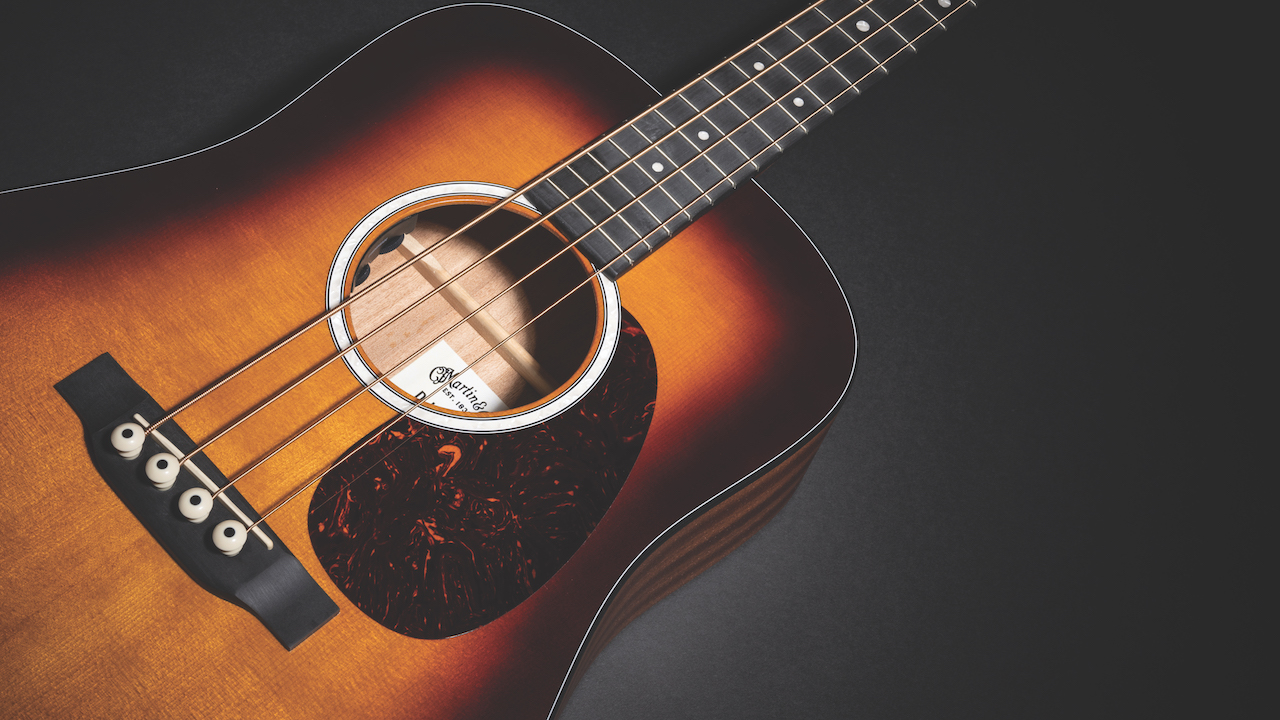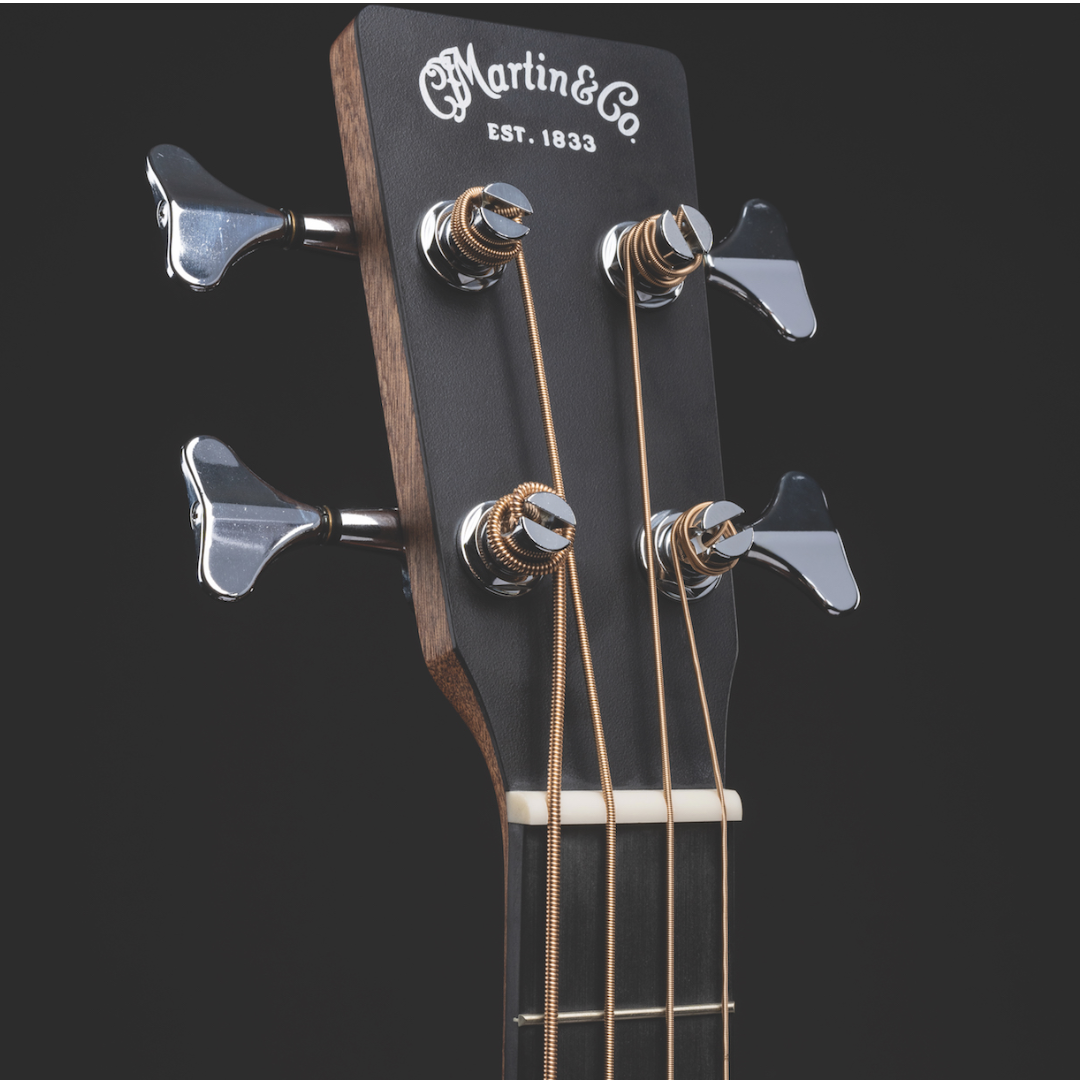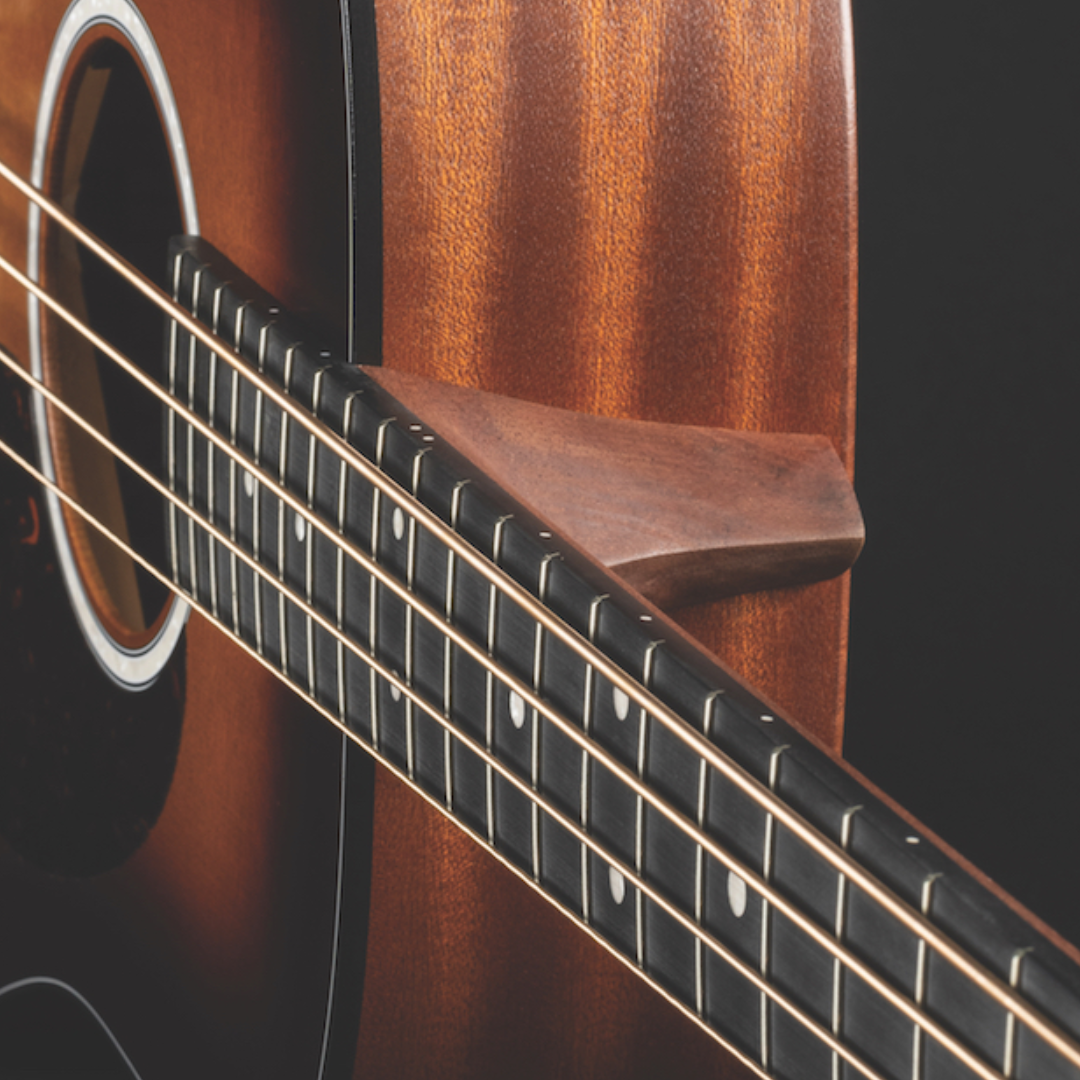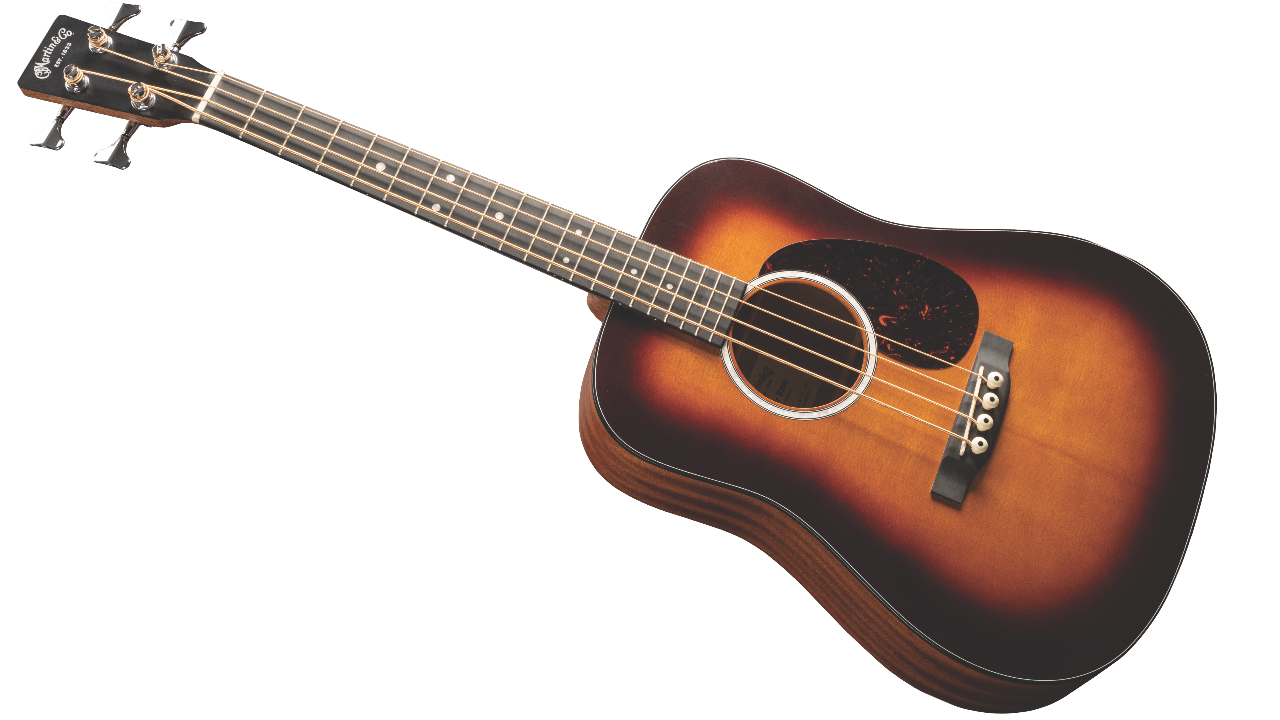GuitarPlayer Verdict
Small, but perfectly formed in a natural spruce or sunburst finish with sapele back and sides; if you've an itch for a junior acoustic bass, put a little low-end love in your life and give this badass a try
Pros
- +
Comfortable, portable and super playable, the attractive DJR-10E looks and sounds great for its compact size and comes at a pretty nice price
Cons
- -
Fourth string sounds slightly less brilliant
You can trust Guitar Player.
One of the more intriguing items Martin introduced at NAMM ’23 was a little acoustic-electric bass that seemed ideal for guitar players interested in doing a bit of bottom end grooving without the heft or freight of a full-scale bass and requisite amp.
The DJR-10E isn’t even the size of a full dreadnought — it’s a Junior — and the street price is pretty junior as well. That wouldn’t mean much if it didn’t play or sound good, so I made sure to put my hands and ears on it at the show. The first impression was impressive, so a second look was surely in order.
The DJR-10E is available in natural spruce or sunburst, and the ‘burst looked a bit more beautiful to these eyes, so that was the review unit requested. It’s dusky, handsome and sports a flashy mother-of-pearl pattern rosette on a solid spruce top, with matching 28-style dot inlays on the Richlite fretboard.
Big Gotoh chrome tuners on the headstock and bold white bridge pins on the far side of a Tusq saddle bring a bit of bling at either end of the strings.
A short scale length and a fine factory setup on its high-performance tapered neck make the D Junior a joy to play. Having the modern standard for a dreadnought nut width of 1 ¾ inches delivers comfortable bass string spacing while feeling wonderfully familiar to acoustic guitarists.
Even players with smaller hands who are accustomed to electric instruments will find this acoustic bass guitar very manageable under the fingers. In fact, you have to put on the governor and not go too “guitar player” on this compact bass.

The scale is a mere 24 inches, but Martin’s custom Junior Bass strings delivered plenty of snap, and I didn’t get that spongy feeling you get with some smaller-scale instruments. However, the fourth string sounded a bit thuddier and muted compared to the other three, although It’s not something I or others caught right away.
All the latest guitar news, interviews, lessons, reviews, deals and more, direct to your inbox!
It seems the scale length is barely enough for the low E. Trying a Drop D tuning made that clear, because it just thudded out. Playing with a pick or fingers with a bit of nail growth worked well in a variety of styles.
Slapping away on that fourth string isn’t exactly percussive, nor what one would be inclined to do on a little acoustic bass. I was fine though, because having the lowest string a bit less brilliant compared to the others can actually be kind of warm and welcoming as you ride along, hitting most of the notes down there and bouncing up and back as one tends to do when playing bass.
Sonically, the DJR has a nice, warm acoustic tone, with enough bite in the middle-to-higher range to provide adequate articulation. The back and sides are made of solid sapele, which is in the same family as mahogany.

Of course it’s not as loud or robust as a full-sized acoustic bass, but it certainly delivers an impressive punch for its diminutive body, which sounds not at all boxy.
I brought it to Yosemite, where some friends and I took turns playing guitar and bass, and it held its own pretty well against guitars that were actually larger. I kind of dug playing guitar while a buddy played this bass, because it didn’t overwhelm the guitar and vocals as some acoustic basses do.
When you want more juice, it’s nice to be able to plug in and play. The onboard Fishman Presys VT Bass electronics do a fine job of bringing more bump, especially through a PA and even when simply running it through the little Fender Acoustic Junior GO guitar amp that I keep handy.
I happened to be working on some new recordings at the time of this review, and the DJR-10E was the perfect thing to grab when I wanted to work on bass parts.

I thought the Martin DJR-10E might be ideal for a bit of bottom-end grooving without the weight of a full-scale bass or amp, and it turned out to be exactly that.
I did spend a dozen years as a staff writer for Bass Player, so I’ve got more low-end experience than many guitar players, but even so, I felt it was a good idea to share the DJR-10E with a couple of bass pros. They agreed that it was indeed a badass little bugger. Comparisons to the popular Kala Uke Bass came up a few times, all in a favorable fashion.
If you’ve got an itch to have a junior acoustic bass around, to put a little low-end love in your life, give the Martin DJR-10E a try. I’ll bet you’ll dig it too.
Specifications
- NUT WIDTH 1 ¾”, white corian
- NECK Select hardwood, Dreadnought Junior shape with high performance taper
- FRETBOARD Richlite, 24” scale, 28-style mother-of-pearl pattern dot inlays
- FRETS 20
- TUNERS Gotoh chrome bass
- BODY Solid sapele back and sides, solid spruce top, satin finish
- BRIDGE Richlite with compensated white Tusq saddle and plastic bridge pins
- ELECTRONICS Fishman Presys VT Bass with soundhole-mounted volume and tone controls
- FACTORY STRINGS Martin M4750 Junior Bass Short Scale Phosphor Bronze Custom Light gauges .045–.096
- WEIGHT 3 lbs (as tested)
- BUILT Mexico
For more information visit Martin Guitars
Jimmy Leslie is the former editor of Gig magazine and has more than 20 years of experience writing stories and coordinating GP Presents events for Guitar Player including the past decade acting as Frets acoustic editor. He’s worked with myriad guitar greats spanning generations and styles including Carlos Santana, Jack White, Samantha Fish, Leo Kottke, Tommy Emmanuel, Kaki King and Julian Lage. Jimmy has a side hustle serving as soundtrack sensei at the cruising lifestyle publication Latitudes and Attitudes. See Leslie’s many Guitar Player- and Frets-related videos on his YouTube channel, dig his Allman Brothers tribute at allmondbrothers.com, and check out his acoustic/electric modern classic rock artistry at at spirithustler.com. Visit the hub of his many adventures at jimmyleslie.com

